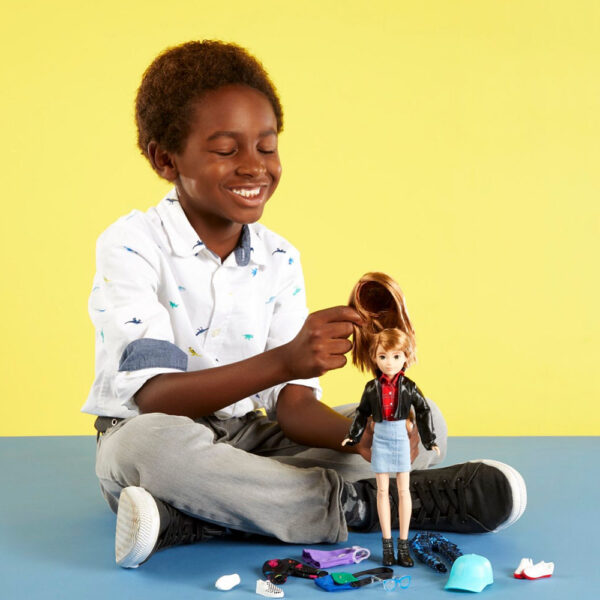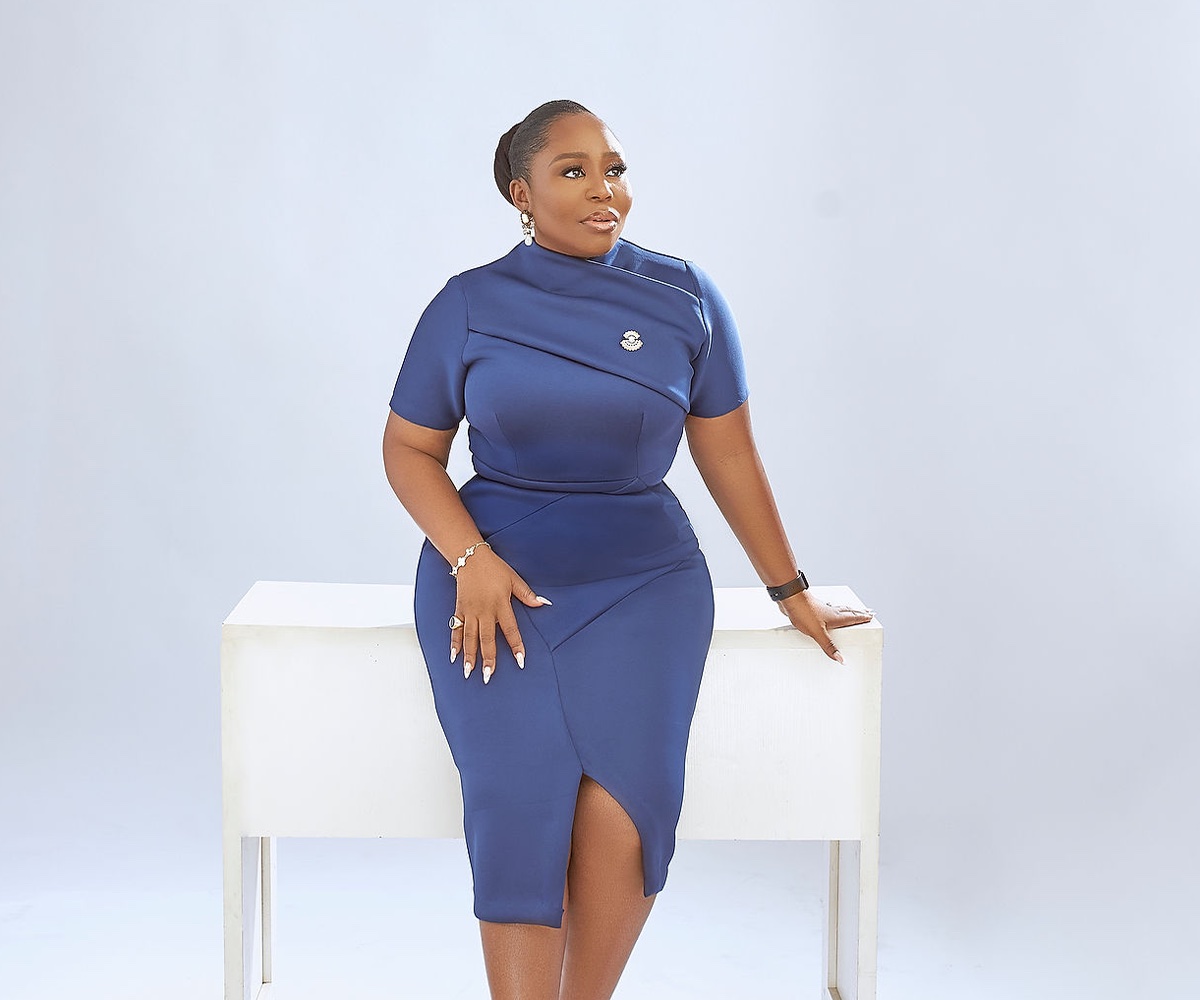
Photo credit: Mattel, Inc.
Film & TV
How Barbie Helped Queer African Kids Feel Safe

Photo credit: Mattel, Inc.
By Chisom Peter Job
August 2023
“Why be put in a box when you can be anything?” 21-year-old Ines asks me, referring to Barbie, America’s favorite doll, which somehow became a safety net for many African kids.
Growing up in Littoral, Benin as the only girl among two siblings in the noughties, Ines spent her childhood playing with a black ballerina Barbie. “I used to make her hair and carry her everywhere because why not? She was my girl and still is, and I am not sure you understand how excited I have been! I was there on opening night, and got a ballerina dress to go with it. It was so good!”
The iconic 64-year-old doll, which hit shelves in 1959 and has made appearances on TV, video games, books, and more, has finally come to life. Directed by Greta Gerwig, with Margot Robbie playing the doll herself and Ryan Gosling as Ken, the live-action Barbie film is simple: “she’s everything. He’s just Ken.”
Barbie had the biggest opening weekend for a female director, and a film in 2023, with a worldwide debut of $337m, showing how much love people around the world have for the doll. And for people on the African continent, this love is special.
For everyone Ines’ age, and even older, Barbie isn’t just a doll. Her fluidity in both career identity and aesthetic modeled the capacity for change, touching the lives of queer and trans people on the continent.
Fola Francis, a Nigerian trans woman, didn’t have Barbie dolls of hers while growing up but would usually play with that of her cousins. “I lived with extended family for some time and didn’t have a doll of mine. So when I couldn’t play with that of my cousins, I’d create paper dolls,” she laughs. “These [paper dolls] would become my version of Barbie, and I’d take care of them because they were my friends too,.” she adds, reminiscing on the adventures she had with them and the secrets they shared.
After watching a few animations, Francis decided she wanted to be like her. “I wanted to be a doll, and now, I am one.” At the time, Francis didn’t know how that would work, but now, she is living it and is a doll, a queer lingo used to refer to trans women.
“My dad bought a Superman action figure for me after I had requested a Barbie doll. You can imagine what it was like to hear him rant about my toy choice as a child.” As an only child, Mikael’s toys were his best friends, and after seeing a Barbie animation at a friend’s, he wanted to own one.
“I know I was sad for a while until I visited an aunt one day and saw an unopened box of Doctor Barbie! I was so excited when she gave it to me and told me not to worry about my dad. And even though he continually gave remarks about me owning a doll, [Barbie] instantly became my best friend and was the first person I ever came out to as gay.”
22 out of 55 African countries recognise LGBTQ+ people, with queer and trans people facing legal challenges in the others. From Nigeria to Togo, same-sex sexual activity is penalized and carries up to 3 years in prison in some countries, and 14 years in others like Nigeria, with death by stoning in Sharia states. Many LGBTQ+ people remain in the closet for fear of their safety, and for many, finding something or someone that makes them feel safe is important.
For those who grew up on the continent, just like Mikael, doing anything remotely feminine was out of the question. However, with Barbie, there was a break from the gender binary as they could freely express themselves by braiding her hair, painting her nails, and reveling in her femininity. Whatever self-expression they desired could be at least temporarily fulfilled through their doll alter ego.
“There’s this joke about how queer men find their first female celebrity and stick by them for life, well, my first was Barbie,” Gerald, 24, says. “I could paint her nails, dress her up, put on fake lip gloss, and it was the best thing ever because no one would do that for me. She was a reflection of who I wanted to be.”
Justin, 26, grew up femme in Nigeria. “I grew up in a very religious household, and while my parents began to acknowledge my queerness quite early, they still prayed for me to change. I wanted to change. But when I saw this plastic doll taking a life of her own, doing anything, I knew I could live freely in my truth. It might sound crazy, but as a young queer kid, it wasn’t,” he adds. As the Barbie frenzy has taken over, Justin is getting everything ready for when he sees it. “I’m not just going to watch Barbie; I am going to be covered in anything pink I can find.”
As Ines adds: “There’s a reason I studied accounting in college and now pursuing other things because I saw Barbie doing it all. I know she’s a girl boss, but she’s my favorite kind.”
With its “unlimited” marketing budget, which includes a Malibu Barbie dreamhouse designed by Nigerian-American designer, Victoria Adesanmi (available on AirBnB) and record breaking opening weekend gross, Barbie is poised to top the very best of 2023 film list.
“It’s my favorite toy-to-film adaptation ever, and I wish Barbieland was real,” Mikael says. “It’s like this utopia where nothing wrong happens, and I fell in love with how that world was portrayed. What’s a better place to live as a queer man?”
Despite there being no press tour on the continent, star studded premieres took place in South Africa and Nigeria. And for the rest of us, Barbie-themed brunches and parties have become a summer must. [Warner Bros. Pictures did not immediately comment on the lack of press tours on the continent.]

